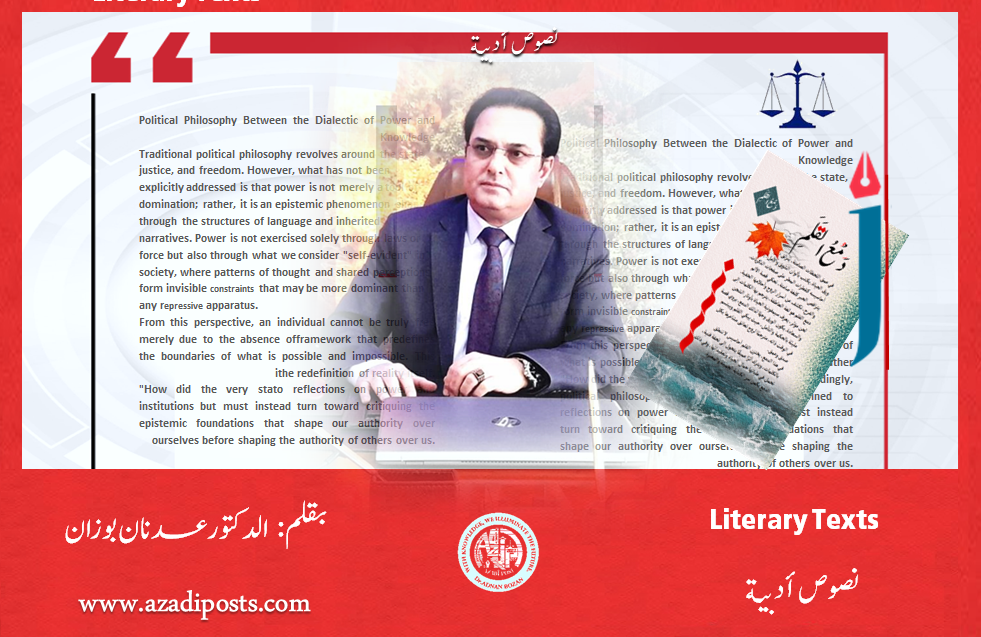
By Dr. Adnan Bozan
In the stillness of time frozen atop the mountain peaks—where only silence grows, and nothing is heard but the whisper of wind upon faces engraved with the maps of exhaustion—they stood aligned, as if in a prayer suspended between earth and sky.
They were not merely men and women, but spirits older than stone—crowned with sorrow, sharpened by dreams, and seized by the awe of life and death all at once.
They were thirty. Half of them women who had learned how to slay longing without even batting an eyelash. Their eyes did not weep, yet overflowed with something deeper than tears… as if all of history resided in their gaze, and every wildflower sprouting on the pavement of oblivion bowed in reverence to them.
The men bore faces adorned with beards not nurtured by time, but by exile, by cold, and by a promise that never dies: Kurdistan.
They had not come to celebrate, nor to raise slogans. They came to bid farewell to their rifles as a lover bids farewell to a woman he adored to the point of combustion.
In the center of the courtyard stood a metal basin—black, as if torn from the fabric of hell itself, borrowed from memory—waiting to embrace the cold iron that had warmed their chests for years, fought on their behalf, and slept beside them on nights when only the stars kept watch over hope.
The first among them stepped forward—an elder in spirit, though his face was no older than forty. His hand trembled slightly—not from fear, but from the awe of sacredness. He placed his rifle down as if placing his heart in the hands of God, then stepped back, trailed by a thousand memories.
A woman followed—eyes ablaze with fire and palm trees, and a single shoulder still carrying the shadow of her fallen comrade who had vanished beyond the edge of clouds. She laid down her weapon and brushed its barrel as a mother caresses the forehead of a newborn child drifting into sleep. She spoke no words, yet the earth understood.
One by one, the ritual repeated:
A weapon surrendered to flame.
A glance cast toward the heavens.
A body returned to the ranks of silence.
Then the fire ignited—as though memory itself had decided to erupt. Smoke rose—not just smoke, but spirits ascending like tales that never die. The fire consumed the metal, yet we saw it devouring years of hunger, notebooks filled with poems composed on mountaintops, and blood spilled in a silence that resembled not death—but birth.
No one spoke. No one sang.
Even the air held its breath for a moment, in reverence for a ritual the mountains had never before witnessed.
Only silence spoke—and its voice was as deep as the abyss, asking:
“Have we outgrown the dream? Or has the dream grown beyond us?”
In their hearts, it was not an ending.
They knew, as trees know that spring will return, that war simply changes shape—as rain changes its path.
The rifles were gone. But the dream remained.
It moved—from shoulder to shoulder, from forehead to book, from gunfire to the throats of children learning, for the first time, how to spell the word: "Freedom."
They left the square slowly… not because their legs were weary, but because memory is heavy—and cannot be carried all at once.
They left behind ashes as pure as holiness, and smoke rising to inform the sky that this earth still gives birth to heroes—who do not die, but transform into symbols walking among us, praying in every home, sleeping beneath every flag.
They left—and the mountains watched them with maternal silence, as if hiding them in her bosom until the time was right.
They left—but the homeland walked beside them: in their breath, in their gaze, in their silence that had become a new language—not written in letters, but read by hearts.
Thus the ritual ended—not as a conclusion,
But as a beginning.
A beginning for a homeland no longer guarded by rifles, but by dreams.
Only lovers understand:
That the land where love is planted… blooms into a nation.